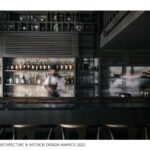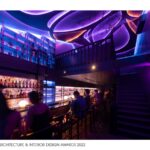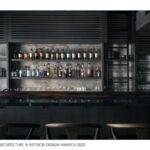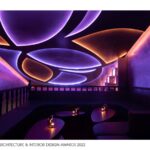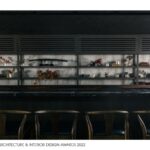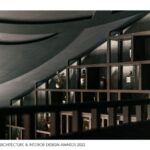GOHO Kaiseki & Bar is housed on the second floor of a conservation shophouse in Singapore. Los Angeles and Singapore-based architecture firm OWIU’s adaptive reuse of the building balances the new owner’s vision – a rule-breaking, high-energy kaiseki – while honoring the shophouse’s heritage.
Global Design & Architecture Design Awards 2022
Third Award | Interiors – Hospitality (Built)
Project Name: GOHO Kaiseki & Bar
Project Category: Interior Hospitality (Built)
Studio Name: OWIU
Design Team: Designed & Built by OWIU: Joel Wong, Amanda Gunawan, Claudia Wainer, Nathan Lin, Bonnie Wong, and Leo Yang
Area: 1233 SQF, 114.5494 SQM
Year: 2022
Location: 53A Duxton Rd, Entrance via RAPPU, Singapore 089517
Consultants:
Photography Credits: Finbarr Fallon
Text Credits: Xhibition PR
Other Credits: Contractor: Teck Guang interiors, Flower Installation: Charlotte Puxley
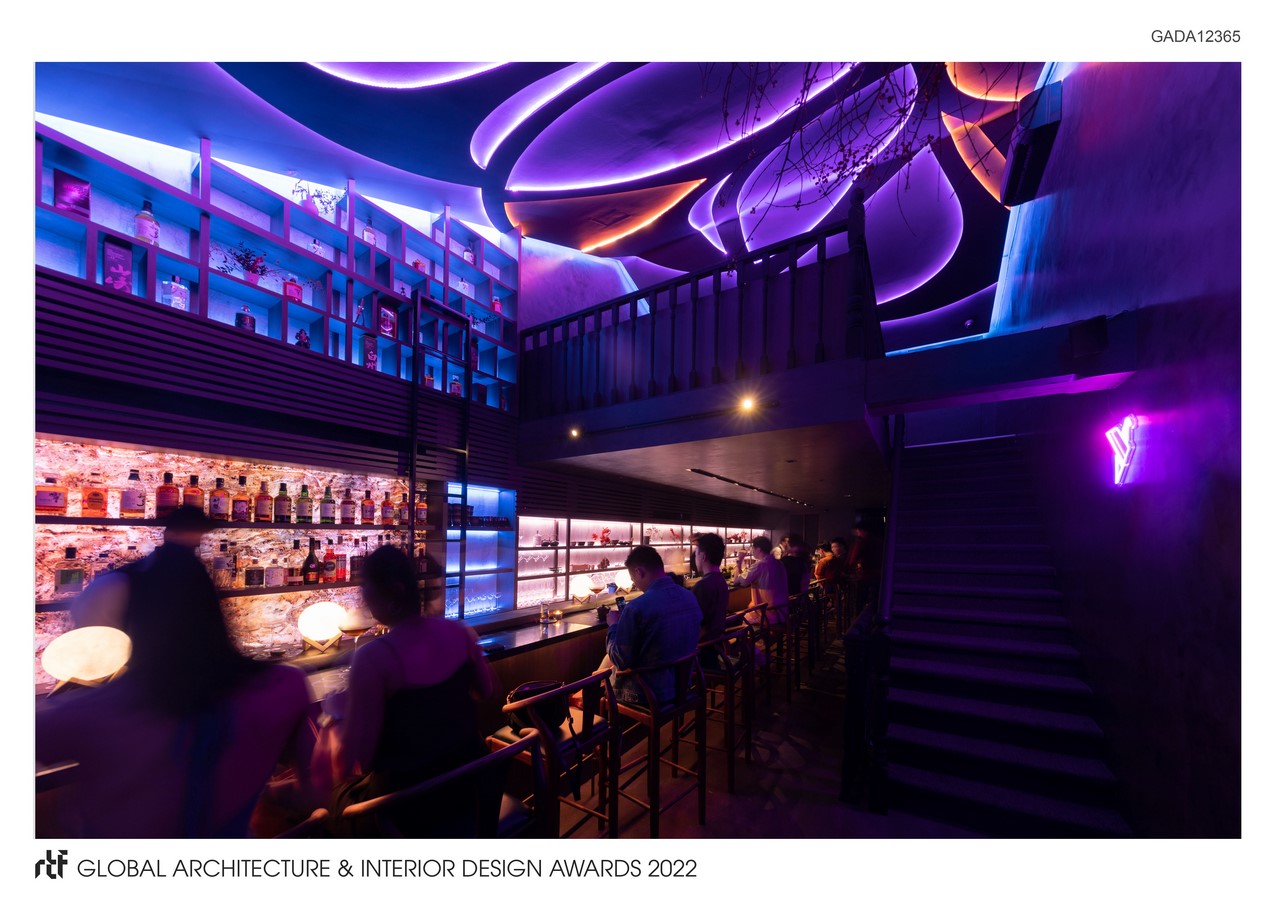
Dating back to the 1800s, the building’s narrow face, long length, and centrally placed timber staircase presented many spatial challenges. Thus, OWIU opted to make the bar the focal point, creating an 11-meter island that extends to the end of the restaurant. The bar, constructed from Verdi Alpi green marble, offers seating for 17 diners (out of 55 total covers). Further maximizing space, OWIU constructed an L-shaped built-in with seating for up to five diners in the corner facing the staircase. To avoid a claustrophobic feel, staff and guest circulation areas were merged to encourage interactivity, and custom booths were created throughout to hold storage.
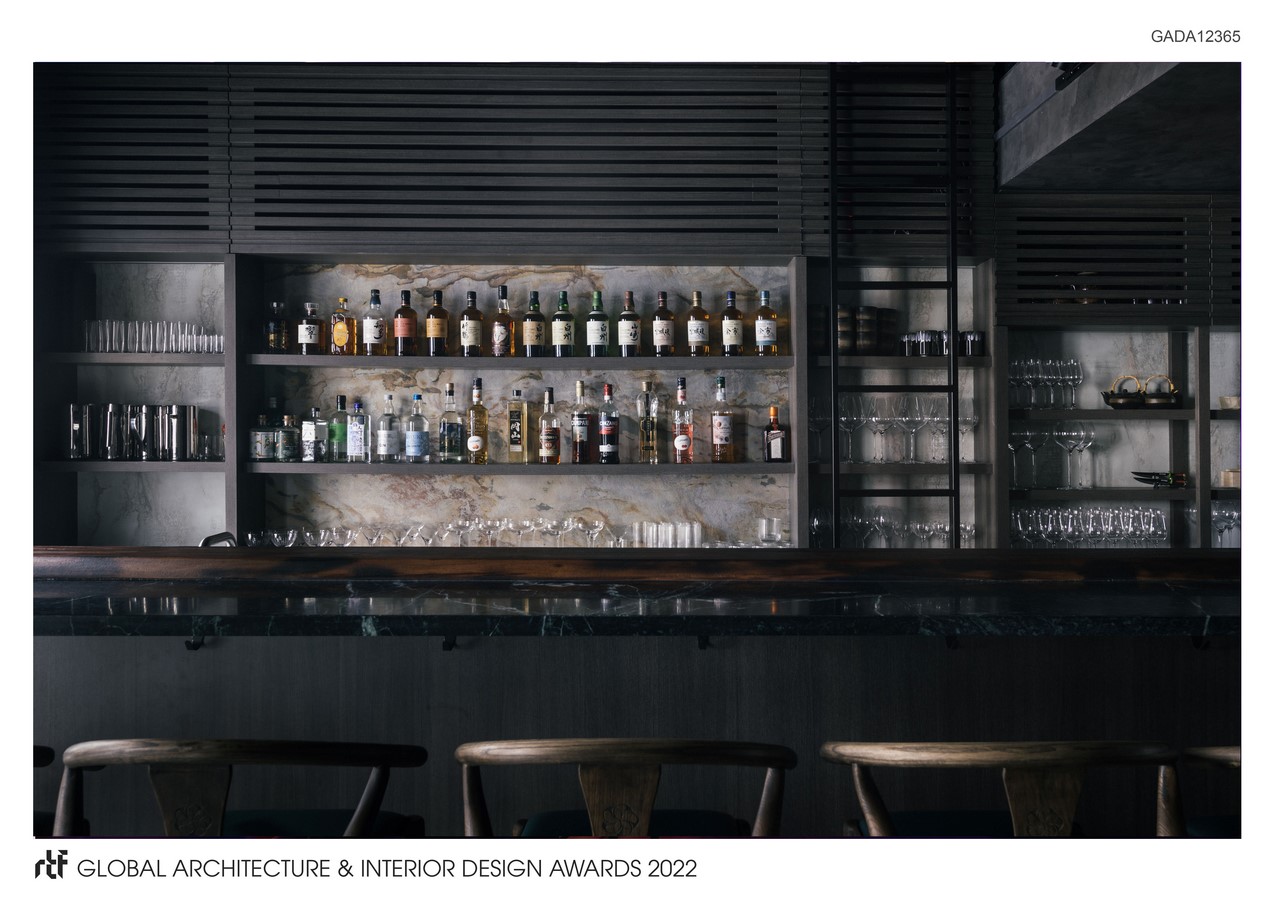
OWIU applied a part-to-whole strategy where eclectic components come together to create a robust whole, counteracting any potential feelings of confinement. To unify the space, the team implemented a desaturated palette. Washed-out grey paint was applied with a plaster effect to accentuate the raw textures and dark walnut tones were used for the carpentry (the green from the marble countertop is the only color used throughout). Sitting on top of the marble is a chengal wood slab that OWIU salvaged from a nearby house fire, further charring it with the Japanese Shou Sugi Ban technique.
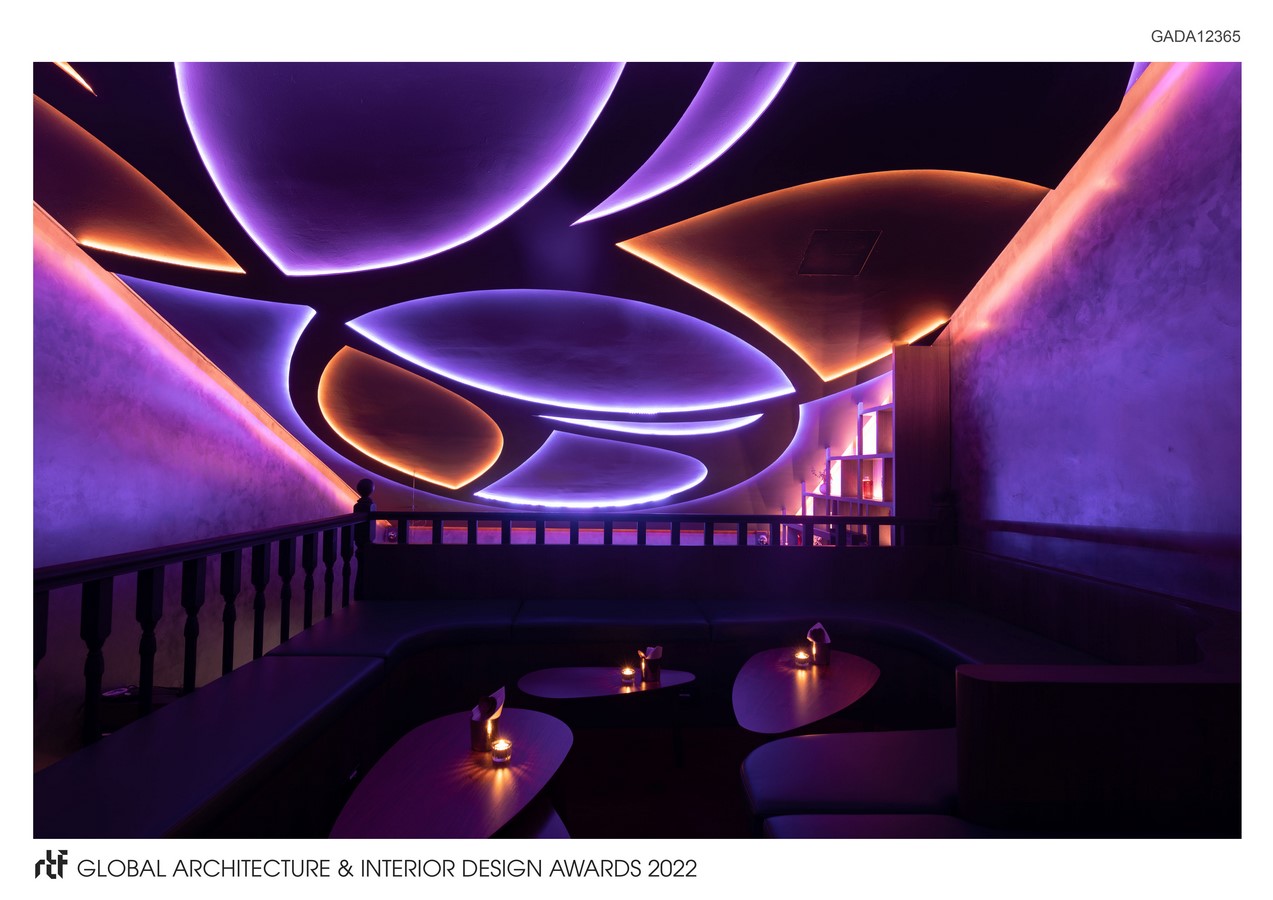
The bar was transformed into two distinct areas by creating a bright, neon-lit space for dining juxtaposed by an alabaster backlit bar at the end of the island. Custom, floor-to-ceiling shelving was built to hold a display using the Japanese practice of shitsurai – a concept that seeks to transform energy using decorative objects. After sourcing artifacts from Japan, the architects arranged the objects to function in an applicative sense, sculpting two spaces from one. OWIU also created custom ceramics for the shelves under its ceramics arm, OWIU Goods. Like kaiseki, which is dictated by the seasons, the vessels display flowers that change with the seasonal menu.
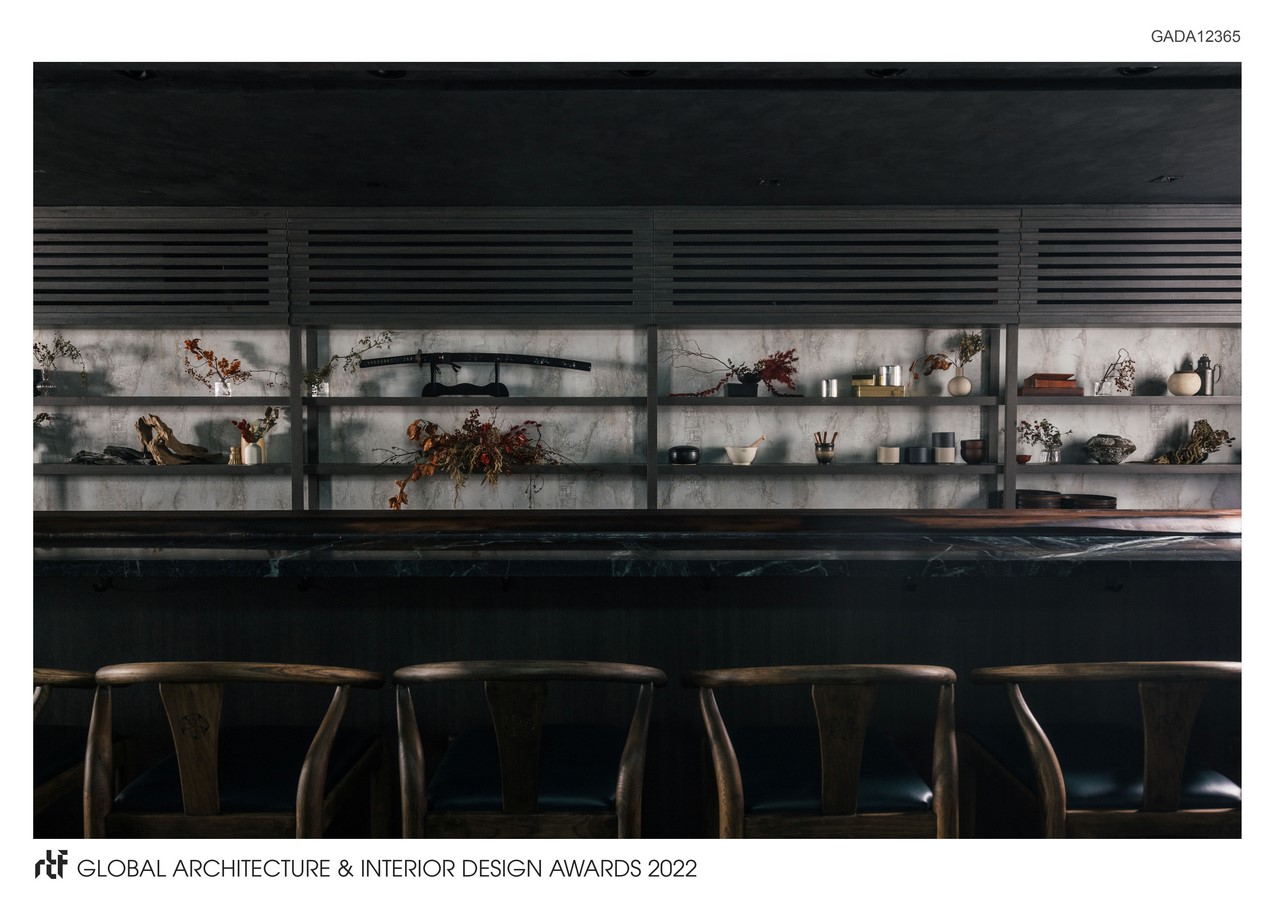
A 4×8-meter neon installation, commissioned to Charlotte Puxley, fills the double-volume void and reflects the restaurant’s logo. The recurring logo is composed of five petals that represent the five Japanese cooking methods known as Goho. The installation geometrically distorts the flat ceiling and changes colors with the time of day and seasons, reflecting the seasonal rotation at the heart of kaiseki. This dynamic light allows patrons to participate with the space as it moves from day to night, resulting in a dining experience unique to its time and place.


